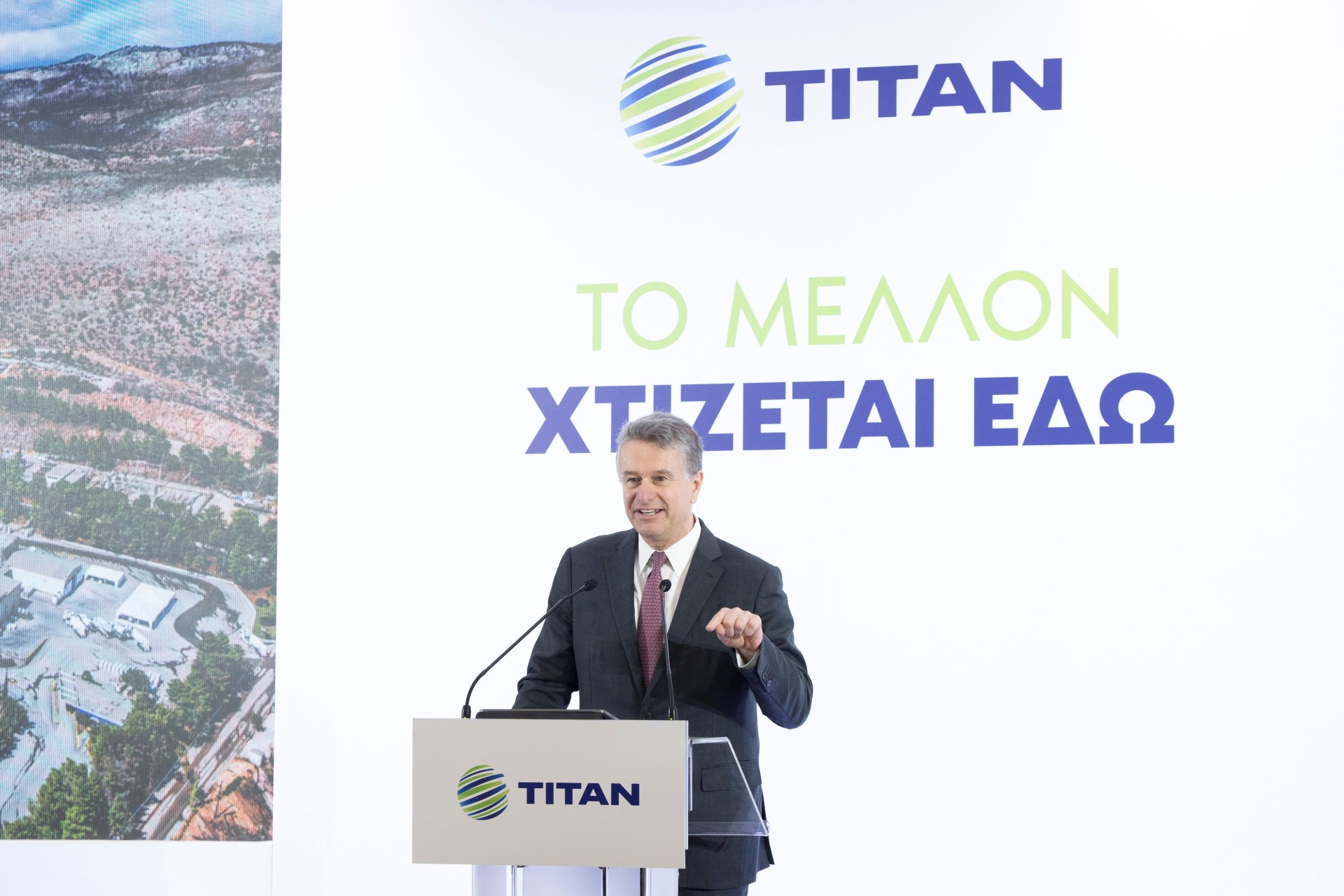- Για έγκυρη και έγκαιρη ενημέρωση
- info@green-news.gr

Γυναικοκτονία: «Το περιπολικό δεν είναι ταξί» – Ο διάλογος της 28χρονης με την Άμεση Δράση
3 April 2024
Νέα χρηματοδότηση 4,7 εκατ. ευρώ από το Υπουργείο Εσωτερικών προς το Δήμο Παλαμά για κάλυψη αναγκών από τις πλημμύρες
3 April 2024Titan’s investment, under the name “IFESTOS”, amounting to 500 million euros, in its factory in Kamari, Boeotia, is in progress.
Upon its completion, the aforementioned industrial facility in 2030 will be the first in the cement industry with a zero carbon footprint. It will contribute significantly to Greece’s goal of carbon neutrality, while producing around 3 million tonnes of carbon zero cement per year to serve the growing needs for “green” construction in the Athens metropolitan area and beyond that.
The management of Titan, in the presence of members of the government, inaugurated on Tuesday a “green” investment of 26 million euros in the Kamari factory, Boeotia, which is considered a milestone in its series of actions to reduce carbon dioxide emissions.
It concerned the upgrading of the cement production line, through the use of new state-of-the-art technology and the successful start-up of a pre-calciner.
Papalexopoulos: 200 thousand tons of processed recycling residues
The president of the Titan Group (as well as the Association of Businesses and Industries – SEV) Dimitrios Papalexopoulos, speaking yesterday at the opening of the aforementioned “green” investment, noted that the factory in Kamari, Boeotia, is now able to replace 70% of the necessary for the fuel operation with waste residues.
It can also absorb 200,000 tons of processed recycling residues per year, reducing the need for their burial while at the same time achieving a reduction of 150,000 tons per year in the factory’s carbon footprint.
He also referred to the application of cutting-edge technologies including Artificial Intelligence (AI).
Today 50% of Titan’s factories use AI as a tool to control their equipment with software developed by its executives. With the use of AI, productivity in Kamari, Boeotia, has increased by 10%. In 2025, when AI will have been installed in all factories, the Group will secure additional cash flows of the order of 25 million per year.
3D printing
Titan executives have also developed a 3D construction printing system by creating a unit at the factory that prints constructions, based on 3D printing technology. The cement industry is already able to provide the material and the printer for constructions that require half the materials and a third of the time compared to conventional constructions. The application is in the initial stages of its development, but Titan has already made its hardware available in the US. It is a technology that aspires to significantly reduce the carbon footprint of buildings, using less, but more specialized cement, at a competitive cost.
Speaking about the cement market in general, Papalexopoulos noted that “there was a difficult 15-year period, but now we are doing well although the demand is still below that before the financial crisis.”
He noted that Greece has an internationally competitive industry that believes in green growth and digital transformation.
At the opening ceremony, the Minister of Environment and Energy, Theodoros Skylakakis, emphasized that “the climate crisis is here. The big difficulty is to respond to the green transition and at the same time to the climate crisis as resources are limited” and he added: “Investments in decarbonization are risky in terms of geopolitical developments as they are affected by the price of CO.”



